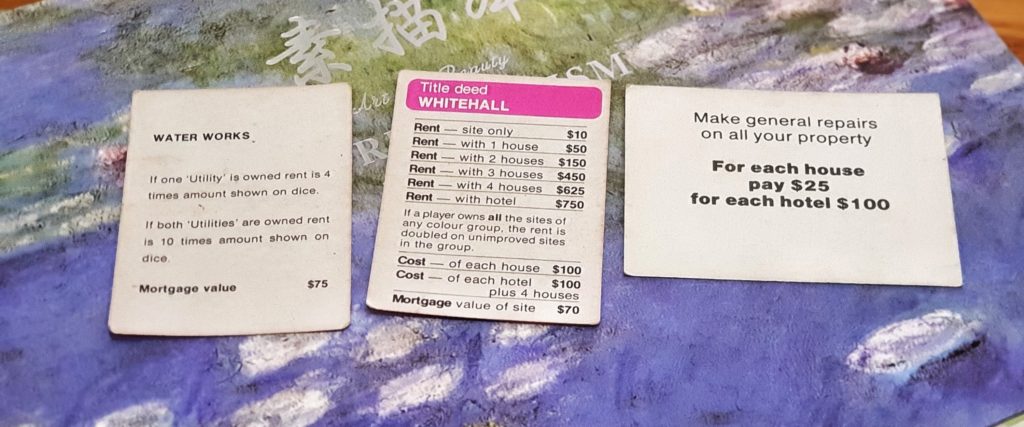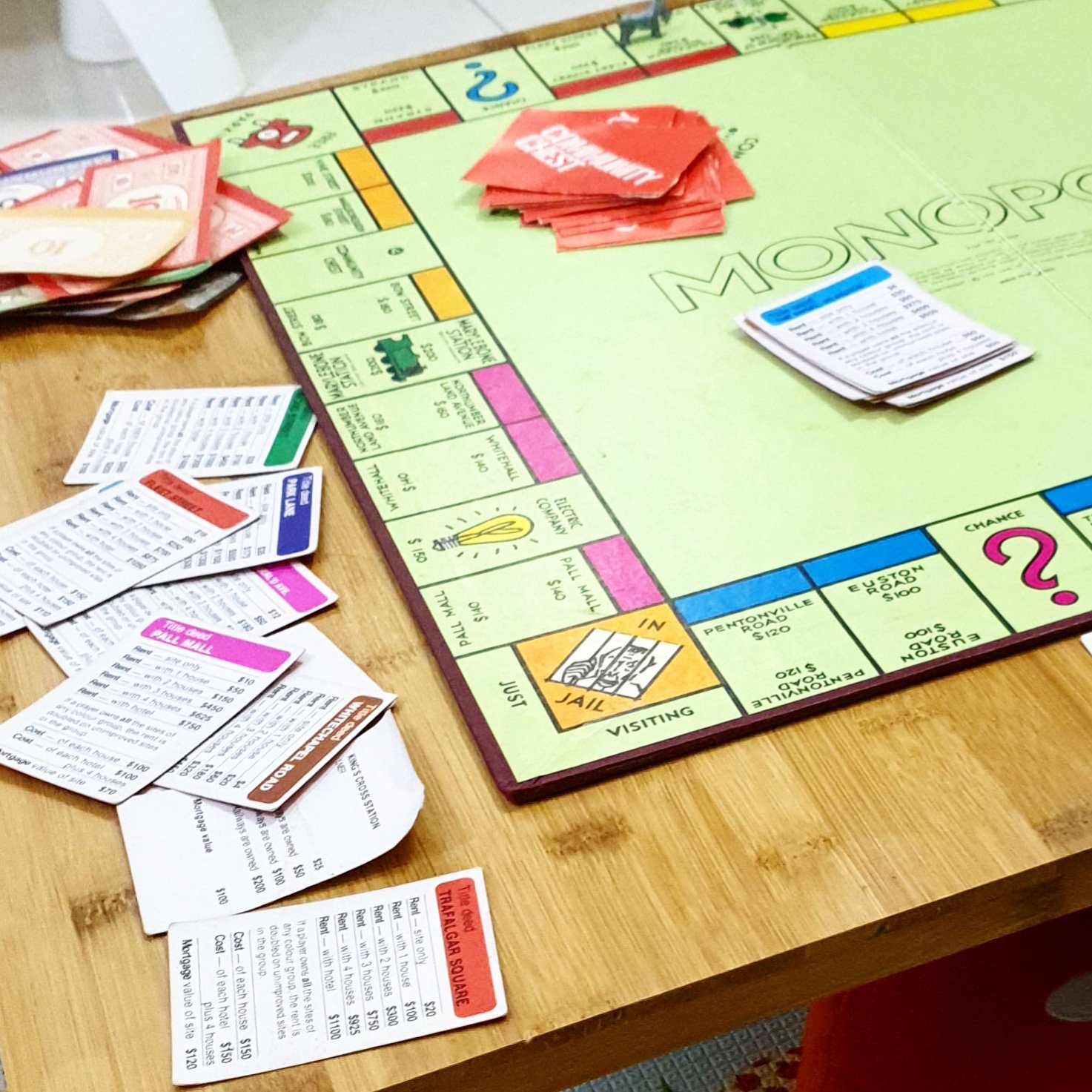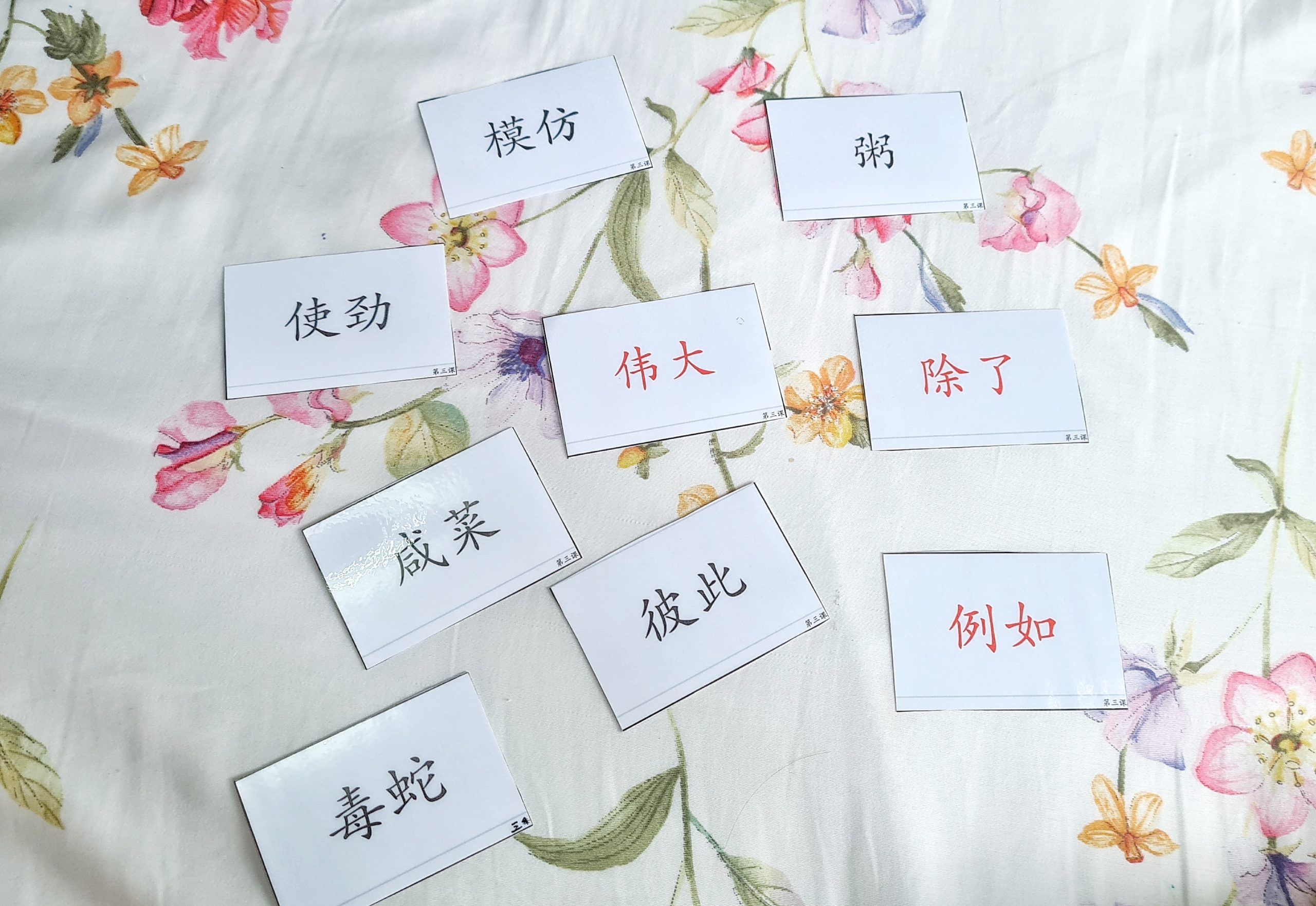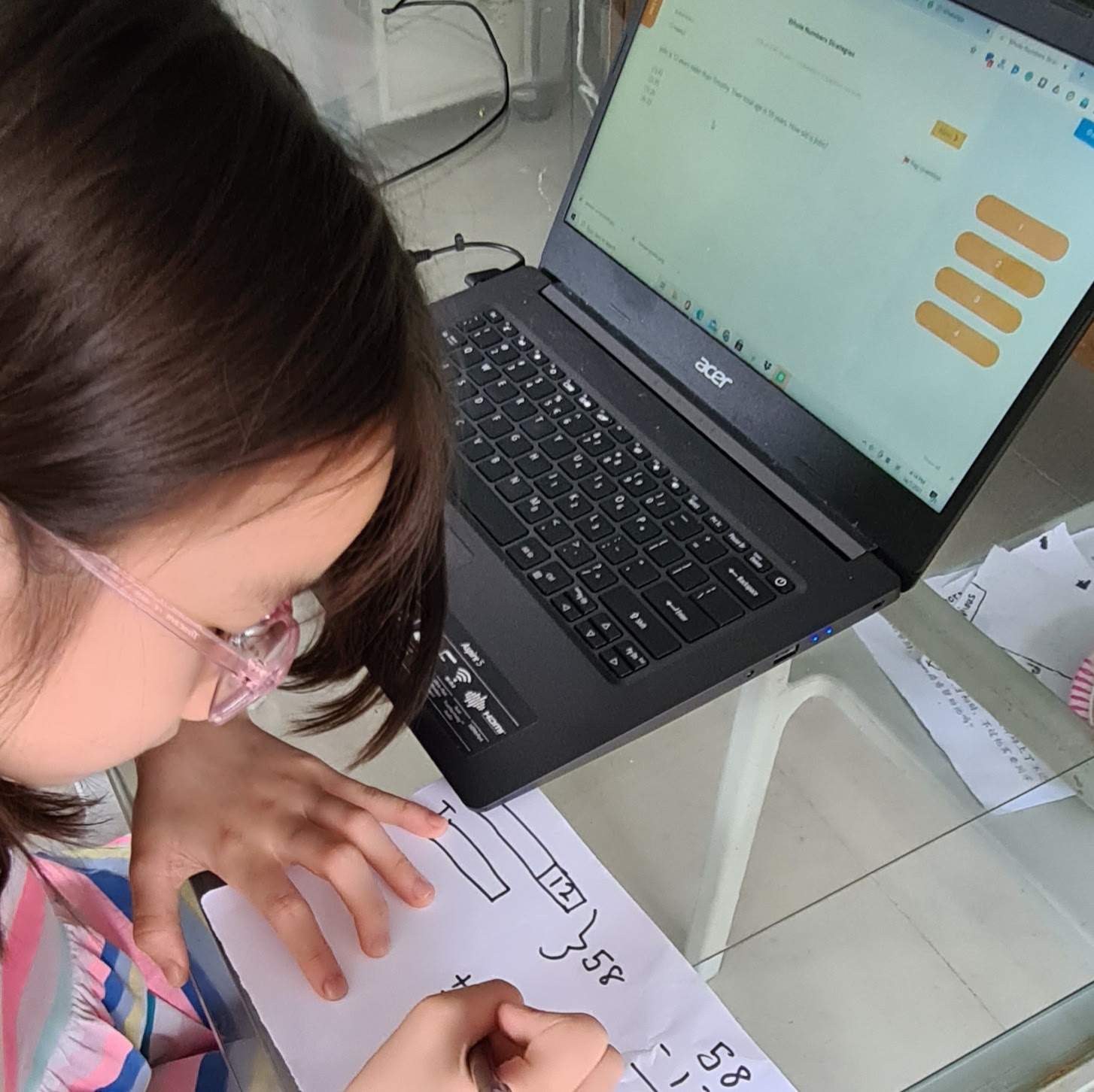Playing games involving maths will surely get a child interested in doing sums, willing and proactively, even if it is late into the nights.
At least it has worked for my P2 and P3 children who are now learning to count in thousands, do multiplications, etc. The game is totally relevant to what they are learning in school now.
I see playing Monopoly as an avenue of getting them to strengthen their foundation in mathematics. There is no pain of going through some plain-looking boring worksheets and problem sums, and pushing the reluctant kids to get on with the calculations.
About Monopoly
Monopoly was developed in 1903 and today, there are many versions of it. We have the Classic board game* as well as the Monopoly City at home. Both have the same objectives – gain as many real estates as possible. The party with the highest asset value wins the game.
Classic Monopoly – Buying Properties and Earn Rent
To level up my kids’ mathematics skills, the Classic Monopoly works better than the Monopoly City. The property prices are smaller, ranging between $60 to $400, while rents are up to $2,000. The rules are easy to understand too. The properties in the Monopoly City are priced in thousands to millions and are too complicated for my 8 and 9-year-old to count. There are also too many fanciful rules that distract the kids from counting.
The act of paying for rent or real estate purchases hones my P3’s money-counting skill, including paying and getting back the right change.
Multiplication Skills
Buying houses and hotels help with their multiplication too. 1 house costs $100, so 4 houses cost $400. We build houses and hotels to increase the rental value of our properties.
Pick a Chance card. If you are required to make general repairs on all your property and you own lots of assets, there will be a handful of calculations to make.

Strategy
Eyeing for a particular site to complete a set of properties for the same colour? Negotiate with the other party who owns your coveted site. Propose paying a higher price or trade with cards.
Is no-one keen to exchange property with you? Persist and pester till you get it.
Chance / Community Chest Cards
If you are familiar with the Classic Monopoly, you will know that the Chance and the Community Chest cards give you the opportunity to earn an extra income by collecting inheritance, pass “GO”, etc, or penalise you by making you pay for repairs, school fees etc.
I am intending to make my own Chance or Community Chest cards that incorporate more mathematics concepts into the game. For instance, pass “GO” and collect half of your salary, collect $300 and share equally with the rest of the players, or give one-quarter of your salary to the player on your left.
Ending the Game
I used to play Monopoly with my brother. Each game took us days or weeks to complete.
With my kids, I limit each session to one or two hours. To tabulate our asset value, we total up our cash holdings and the value of the sites, houses and hotels at cost. Making this final count is tremendous work for my kids. But they are often very willing to do it because they are hoping to be the winner.
We definitely had lots of fun and memorable times playing Monopoly together. And they didn’t even know these were sessions of Maths revisions!
Hope my sharing gives you some inspiration too.
Don’t have the Monopoly game at home? Get it from Amazon,sg here*.
* Contains affiliate links.
You may be interested in these posts too:
KooBits ProblemSums – Effective Mathematics help for the kids
Base Ten Blocks for Learning Mathematics
8 Crabs – Awesome Treats Delivered to Your Doorstep


